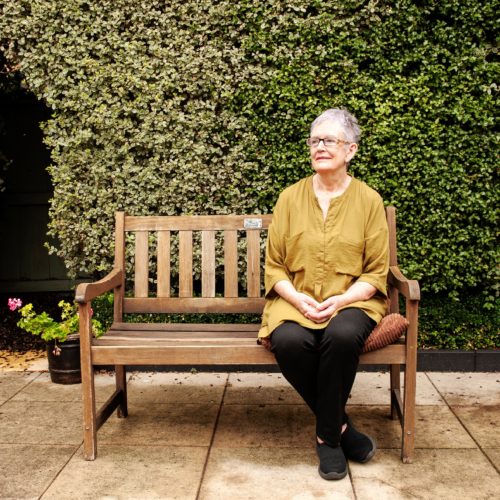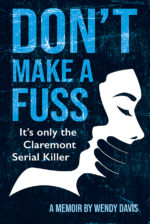Wendy Davis shares why she wrote about her traumatic encounter with serial killer Bradley Robert Edwards – and why she hopes it encourages women to find and use their voice

This book didn’t start life as a book. It began as therapeutic journaling to deal with the trauma that re-emerged when the man who violently attacked me in my workplace was, some twenty-five years later, arrested and charged with brutal rape and murder.
When Bradley Robert Edwards was arrested in 2016 for a series of killings that shocked Western Australians in the 1990s – now known as the Claremont serial killings – I was retired and living quietly on the other side of the country in Hobart, Tasmania. The trauma that engulfed me at the news of his arrest continued for the the next three years as police and lawyers gathered evidence. As I relived the assault, my memories and feelings ebbed and flowed as I dealt with the WA legal system and eventually gave evidence in the Supreme Court of WA at the end of 2019.
The assault against me was not my attacker’s first act of violence, and his actions escalated with horrific consequences for his victims and their families.
But when I first recounted the attack, it wasn’t recognised by family, friends, workmates, even the police when they became involved. Hopefully, everyone involved in the case are now questioning the part they played in his subsequent rapes and murders.
When I first started writing, it was a way of processing the feelings that overwhelmed me as I recalled events from the past and listened to the details that emerged as the trial progressed. Initially, my journaling was all about me and what had happened all those years ago. Over the course of the three years it took to bring Edwards to trial, I began to understand how I was part of the bigger story in the development of a killer.
During this period, I saw women speaking out against violence and abuse, publicly telling their stories, and I wanted to raise my voice to join the chorus – to tell my story but also to show what can happen when no one listens to you, when you lose your voice and when you don’t speak up.
I hope my story will encourage women to speak out against any and all types of violence; that it will help police and authorities understand that women who have experienced violence need to be listened to and supported; and in particular, that the police will be better equipped to recognise and address unusual violent behaviour if they come across someone like Edwards in the future.



